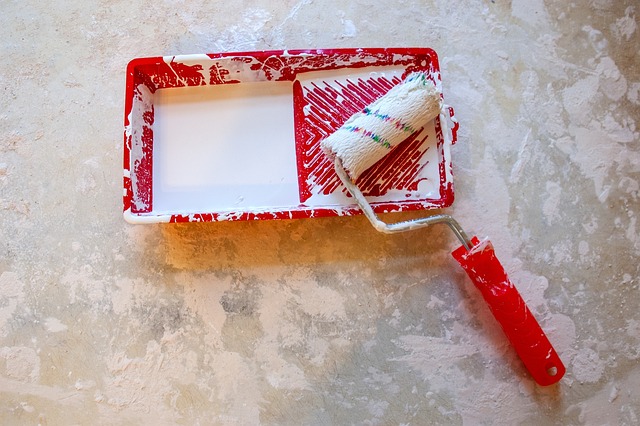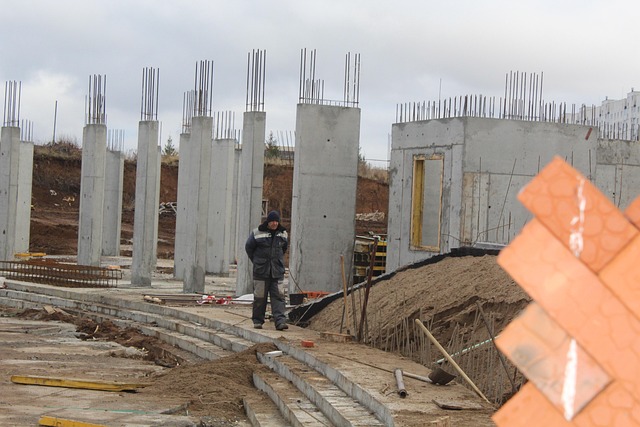Foundation Repair Specialists are crucial for maintaining structural integrity in regions with variable climates and geologies. They employ techniques like moisture content monitoring, soil stabilization, and drainage systems to assess and manage soil conditions. Proactive soil-related issue addressing helps mitigate settlement, heave, or shifting, ensuring building stability, occupant safety, and property value preservation. Specialists use advanced methods like deep piling, soil reinforcement, and chemical stabilization to fortify soil, enhance bearing capacity, and prevent costly repairs. Regular inspections, maintenance schedules, and strategic soil management are key preventive measures recommended by these experts to ensure long-term foundation health and protection against environmental factors.
Foundation soil management is a critical yet often overlooked aspect of construction and property maintenance. This comprehensive guide delves into the essential practices for ensuring stable and healthy foundation soils, with a focus on roles played by Foundation Repair Specialists. From understanding soil dynamics to implementing effective reinforcement techniques, we explore key strategies. Learn about common issues, preventive measures, successful case studies, environmental impacts, and future trends in this vital field, all highlighting the expertise of Foundation Repair Specialists.
Understanding Foundation Soil Management: A Basic Overview

Foundation soil management is a critical aspect often overlooked but crucial for maintaining structural integrity, especially in regions with variable climates and geologies. It involves understanding the interaction between the foundation and the surrounding soil to prevent damage and ensure longevity. Foundation repair specialists employ various techniques to assess and manage soil conditions, including moisture content monitoring, soil stabilization, and implementing drainage systems.
By addressing soil-related issues early, these experts can mitigate potential problems like settlement, heave, or shifting, which can be costly and detrimental to the foundation’s health. This proactive approach is essential in preserving the stability of buildings, ensuring the safety of occupants, and maintaining the overall value of properties over time.
The Role of Foundation Repair Specialists in Soil Stabilization

Foundation Repair Specialists play a pivotal role in soil stabilization, addressing critical issues that can compromise structural integrity. They employ advanced techniques and technologies to assess the soil’s condition, identifying weaknesses or instabilities that may go unseen. Through expert analysis, these specialists design tailored solutions to fortify the soil, ensuring it provides a solid foundation for buildings and infrastructure.
Their expertise lies in implementing effective methods like deep piling, soil reinforcement, and chemical stabilization. By enhancing soil bearing capacity and reducing settlement, Foundation Repair Specialists mitigate risks associated with poor soil conditions. This not only prevents costly repairs but also guarantees the longevity and safety of structures built on unstable soils.
Assessing Soil Conditions for Effective Foundation Maintenance

Evaluating soil conditions is a critical step in ensuring effective foundation maintenance, and it’s something that only experienced Foundation Repair Specialists can accurately accomplish. Before any repair or treatment is undertaken, specialists need to thoroughly analyze the soil surrounding the structure. This involves assessing factors like soil type, moisture content, drainage efficiency, and any signs of contamination or erosion. Understanding these elements is key as they significantly influence the stability and longevity of the foundation.
For instance, expansive clays, when subjected to varying moisture levels, can cause heaving and settling, leading to cracks in foundations. Conversely, poorly drained soil can contribute to water seepage, which over time deteriorates the foundation’s integrity. Foundation Repair Specialists use this knowledge to implement tailored solutions, such as piering or underpinning, to stabilize the foundation and prevent future damage.
Techniques for Soil Reinforcement and Strengthening

Foundation soil reinforcement is a critical aspect of maintaining structural integrity, particularly in areas prone to shifting or unstable ground. Foundation repair specialists employ various techniques to strengthen the soil and ensure the stability of the foundation. One such method is deep soil mixing, where a mix of cement, water, and sometimes aggregates is injected into the soil at depth. This process improves soil bearing capacity and increases resistance to shear forces, thus strengthening the overall foundation.
Another effective technique is pile driving, which involves driving steel or concrete piles into the ground to provide additional support. These piles are strategically placed to transfer load from the building to the more stable layers of soil below. By combining these techniques with proper drainage systems and regular monitoring, Foundation repair specialists can effectively manage soil conditions, prevent foundation failure, and extend the lifespan of structures built on challenging terrains.
Common Soil-Related Issues That Require Professional Attention

Many homeowners often underestimate the significance of soil-related issues, which can have severe implications for their properties’ structural integrity. Over time, poor soil conditions, such as settlement or uneven compaction, can lead to cracks in foundations, walls, and floors, causing long-term damage. These problems may require immediate attention from foundation repair specialists to prevent further deterioration.
Common soil-related issues include expansive clay soils that swell and contract with moisture changes, leading to structural shifts. Weak or unstable soils can cause sinking or tilting of structures, while water infiltration due to poor drainage can result in heaving of foundations. Foundation repair specialists employ various techniques like soil stabilization, deep foundation enhancement, and advanced waterproofing solutions to address these challenges.
Preventive Measures: Regular Inspections and Maintenance Schedules

Regular inspections and maintenance schedules are essential preventive measures that every homeowner should consider for their foundation health, recommended by top Foundation Repair Specialists. These routine checks allow for early detection of any signs of damage or instability, which can be addressed before becoming costly and complex issues. By implementing a consistent inspection regimen, homeowners can safeguard against potential problems associated with shifting soil conditions, water intrusion, and other environmental factors that may compromise the structural integrity of their homes.
Maintenance schedules play a vital role in complementing these inspections. Regular upkeep ensures that any identified concerns are promptly addressed through appropriate remediation techniques. This proactive approach not only extends the lifespan of the foundation but also prevents further deterioration, ultimately saving homeowners from extensive and costly repairs in the long run.
Case Studies: Successful Foundation Soil Management Projects

The Environmental Impact of Proper Soil Handling Practices

Proper soil handling practices, often overlooked yet paramount, significantly mitigate environmental impacts associated with foundation repair. Foundation repair specialists understand that the earth beneath our structures is a delicate ecosystem. Uncontrolled excavation and movement can cause severe damage to local flora, fauna, and water tables. By implementing eco-conscious techniques, these professionals ensure minimal disruption to the natural balance.
One of the key benefits is reduced soil erosion, which can be achieved through strategic grading and vegetation retention. Additionally, proper waste management during foundation repairs prevents pollution by ensuring hazardous materials are disposed of responsibly. Foundation repair specialists also play a vital role in preserving biodiversity by avoiding unnecessary excavation, allowing for the preservation of native species and their habitats.
Future Trends in Foundation Repair and Soil Management

The future of foundation repair and soil management is ripe with innovative trends that promise enhanced durability and longevity for structures worldwide. Foundation repair specialists are leveraging advanced technologies, such as drone surveillance and precision excavation tools, to conduct more effective and minimally invasive repairs. These innovations not only reduce construction disruptions but also optimize the overall cost-effectiveness of projects.
Additionally, there’s a growing emphasis on preventive maintenance and proactive soil management. This involves regular monitoring of soil conditions, implementing advanced waterproofing solutions, and adopting eco-friendly reinforcement techniques. By predicting potential issues before they arise, foundation repair specialists can significantly mitigate damage, extend the lifespan of structures, and contribute to more sustainable building practices.
